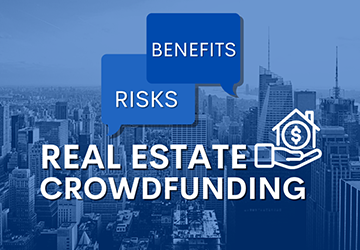Where to Invest Extra Cash for Maximum Growth
Got some extra cash sitting around? Don't let it collect dust in a low-interest savings account. Whether you’ve received a work bonus, sold something big, or just managed to save up, smart investing can make your money work for you. But where exactly should you put it?
Let's break down some of the best investment options for maximum growth and the risks and rewards each offers.
1. Stock Market – High Growth with Volatility
When people think of investing, the stock market is often the first thing that comes to mind. Historically, stocks have delivered some of the highest returns over the long run.
Why Invest in Stocks?
Potential for High Returns
The S&P 500, a benchmark for the stock market, has averaged around 10% annual returns over decades.
Easy Access
Platforms like Robinhood, Fidelity, and Vanguard make investing simple for beginners.
Liquidity
Unlike real estate or business investments, you can buy and sell stocks instantly.
How to Get Started:
Index Funds & ETFs
These give exposure to multiple stocks at once, reducing risk. S&P 500 ETFs are a tremendous beginner-friendly option.
Individual Stocks
If you're willing to research, stocks from high-growth companies like Apple, Amazon, and Tesla can lead to huge gains.
Dividend Stocks
These provide steady income while also appreciating over time.
Risk Factor: Stock markets can be volatile. If you need your cash in the short term, stocks may not be ideal. Always think long-term when investing here.
2. Real Estate – Build Wealth with Tangible Assets

Real estate is a solid bet if you want an investment that grows while also providing potential rental income. Property values tend to rise over time, making it an attractive choice for long-term investors.
Why Invest in Real Estate?
Steady Appreciation
Home values have historically increased over time.
Rental Income
A property can generate passive income every month.
Leverage
Unlike stocks, you can use borrowed money (a mortgage) to buy real estate and increase returns.
Ways to Invest:
Rental Properties
Buy a house or apartment and rent it out for monthly income.
REITs (Real Estate Investment Trusts)
If you don’t want the hassle of managing a property, you can invest in REITs, which are like stocks but focused on real estate.
Flipping Houses
If you have cash and knowledge of renovations, flipping properties can provide significant profits.
Risk Factor: Real estate isn't as liquid as stocks. Selling may take months, and property values can fluctuate with the economy.
3. Cryptocurrency – High Risk, High Reward
Cryptocurrency has taken the world by storm, with some investors seeing incredible returns. But it's also one of the most volatile investments.
Why Invest in Crypto?
Huge Growth Potential
Coins like Bitcoin and Ethereum have skyrocketed in value over the years.
Decentralization
Crypto isn’t controlled by governments or banks, making it an attractive alternative asset.
Blockchain Technology
The underlying tech is being adopted across multiple industries, increasing its long-term potential.
Best Crypto Strategies:
Buy & Hold (HODL)
Many investors have held onto Bitcoin and Ethereum for years, treating them like digital gold.
Altcoins & DeFi
Investing in lesser-known cryptocurrencies or decentralized finance (DeFi) projects can be lucrative but riskier.
Staking & Yield Farming
Some cryptos allow you to earn passive income just by holding them.
Risk Factor: Crypto is highly volatile. Prices can skyrocket or crash overnight. It's best to invest only what you can afford to lose.
4. Startups & Small Businesses – High Growth Potential

Investing in startups or small businesses can be a game-changer if you have an entrepreneurial mindset. This category includes everything from funding new companies to starting your side hustle.
Why Invest in Startups?
Massive Upside Potential
Early investors in companies like Uber and Airbnb made millions.
Diversification
Investing in multiple startups can spread your risk.
Equity Crowdfunding
Platforms like AngelList and SeedInvest allow everyday investors to fund startups.
Starting Your Own Business:
• If you have a business idea, using extra cash to build it can create long-term wealth.
• Online businesses, e-commerce stores, and consulting services are great options that don’t require massive investments.
Risk Factor: Startups have a high failure rate. Only invest in businesses you understand or believe in.
5. High-Yield Savings & Bonds – Safer Growth Options
Not all investments need to be high-risk. If you prefer stability, high-yield savings accounts and bonds can grow your money safely.
Why Choose These?
Low Risk
Unlike stocks and crypto, your money is much safer.
Guaranteed Growth
While slower, these investments provide steady returns.
Good for Emergency Funds
If you need quick access to cash, this is a great option.
Best Choices:
High-Yield Savings Accounts
Banks like Ally and Marcus offer better interest rates than traditional banks.
Government Bonds
U.S. Treasury Bonds are secure and offer modest returns.
Corporate Bonds
Companies issue bonds with higher returns than government ones.
Risk Factor: Returns are lower than other investments, meaning your money won’t grow as fast.
6. Precious Metals – A Safe Haven in Uncertain Times
For centuries, gold and silver have been used as stores of value. They are great options for those who want to hedge against inflation.
Why Invest in Gold & Silver?
Stable Value
Precious metals tend to hold their worth even during economic crises.
Inflation Protection
As money loses value, gold often goes up.
Diversification
Adding metals to your portfolio balances high-risk investments.
How to Invest?
Physical Gold & Silver
Buying bars or coins is the traditional way.
Gold ETFs
These allow you to invest in gold without owning a physical asset.
Mining Stocks
Investing in gold-mining companies is another option.
Risk Factor: Metals don’t provide income like stocks or real estate. Prices can fluctuate based on market demand.
Choosing the Right Investment for You
There’s no one-size-fits-all investment. Your choice depends on your financial goals, risk tolerance, and time horizon.
• If you want fast growth, consider stocks, crypto, or startups.
• If you prefer stability, go for real estate, bonds, or high-yield savings.
• If you want a balanced approach, mix multiple options for diversified growth.
No matter where you invest, starting early and staying consistent is key. The longer your money is invested, the greater the potential for compounding growth. So, where will you put your extra cash?











